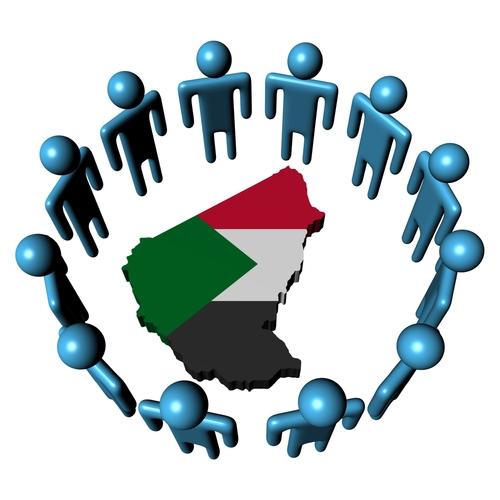- Home
- Play & Learn Home
- Online Enrichment
- Experience Modern Israel
- Israel It's Complicated
- Jewish and Me
- Jewish Holidays Jewish Values
- Jewish Values in Genesis and Jewish Values in Exodus
- Min Ha’aretz
- Our Place in the Universe
- Simply Seder
- The Prophets: Speaking Out for Justice
- Making T'filah Meaningful
- Make, Create, Celebrate
- Yom Haatzmaut Resources
- Hebrew Apps
- About The OLC
- What is the OLC?
- Introduction
- Get Started
- Resources
- OLC Content
- Parent Materials
- See My OLC Classes
- Store
Stopping Genocide in Sudan
Villagers in Darfur, Sudan, call them Janjaweed, which means "devils on horseback," and the murderous Arab militiamen with that frightening nickname have earned the label. With assistance from Sudan's ruling political party, the National Islamic Front, the Janjaweed have attacked farming villages in western Sudan and killed tens of thousands of villagers. To escape the violence, two million people have fled to refugee camps, but they remain in danger: More than 70,000 people in the camps have died from disease and starvation. Although the United States has accused the Sudanese government of genocide--the deliberate destruction of an entire people, in this case, Blacks in Darfur--U.S. Secretary of State Colin Powell has said that "no new action is dictated by this determination."
BACKGROUND TO THE CRISIS
When the British granted Sudan its independence in 1956, they handed political control to the Arabs, the majority population in northern Sudan. That decision triggered a civil war between Arab Muslims in the north and Black African Christians in the south. The war simmered for decades, but it exploded in 1989, when the Sudanese government forced Islamic law (shari'a) on the entire country.
CHRISTIANS vs. MUSLIMS
Already politically and economically persecuted, Black Christians resented religious discrimination, and their rebel army renewed its resistance to the Islamic government. Government forces waged a jihad (Islamic holy war) against the Christians, killing more than two million people. Islamic fundamentalists around the world, including Osama bin Laden, flocked to Sudan to join the jihad. Their presence awakened the U.S. House of Representatives to the tragedy and prompted Congress to condemn the National Islamic Front for committing genocide in southern Sudan.
ARAB MUSLIMS vs. BLACK AFRICAN MUSLIMS
Last May, the Islamic government signed a peace agreement with the Christian rebels, granting them limited sovereignty. As that conflict slowed, the government shifted its resources to combat another rebellion that had erupted in 2003 in Darfur. Some Black African Muslim farmers, frustrated by decades of racial discrimination by the Arab government, had launched a military campaign to achieve self-rule.
ONGOING GENOCIDE
The Sudanese government responded to the rebellion in Darfur by sending the Janjaweed to destroy the Black African villages in the region. "The militia, they take our children, burn our houses. They're killing us because we are Black," says Ahmed Adam Mohamed, a refugee.
After a year of indifference, the United Nations recently organized a small peacekeeping force, but it's too small to stop the slaughter, and it has failed to safeguard food and medical supplies for the refugee camps. Andrew S. Natsios, a U.S. official, warns that the "worst is yet to come." Winter rains will bring malaria, he says, "and there are already epidemics of measles..., which will kill a lot of children under five."
WHAT CAN YOU DO?
The Torah (Vayikra 19:17) provides an answer: hokhe'ah tokhi'ah (you shall surely rebuke). When Jews see wrongdoing, we're obligated to speak out against it. For too long, the international community has ignored genocide in Sudan. Because Jews have been victims of genocide, we have a unique responsibility to focus the world's attention on the human tragedy in Darfur.
As we went to press, Sudanese officials and rebel leaders in Darfur signed a cease-fire agreement.
0
American Jewish World Service: http://www.ajws.org
Jews' moral obligation to help: http://www.aish.com/societyWork/society/Darfur_Never_Again$.asp


